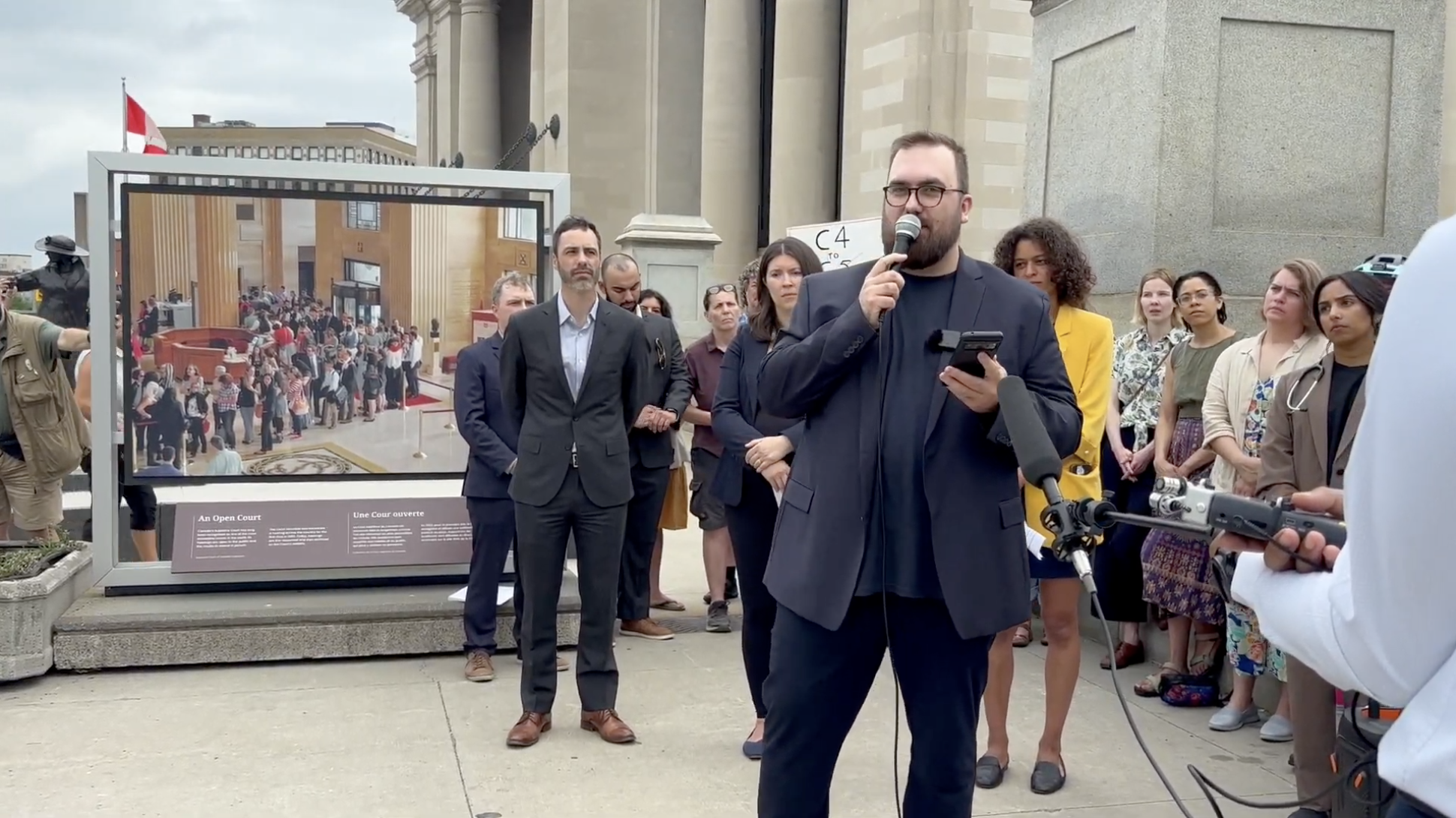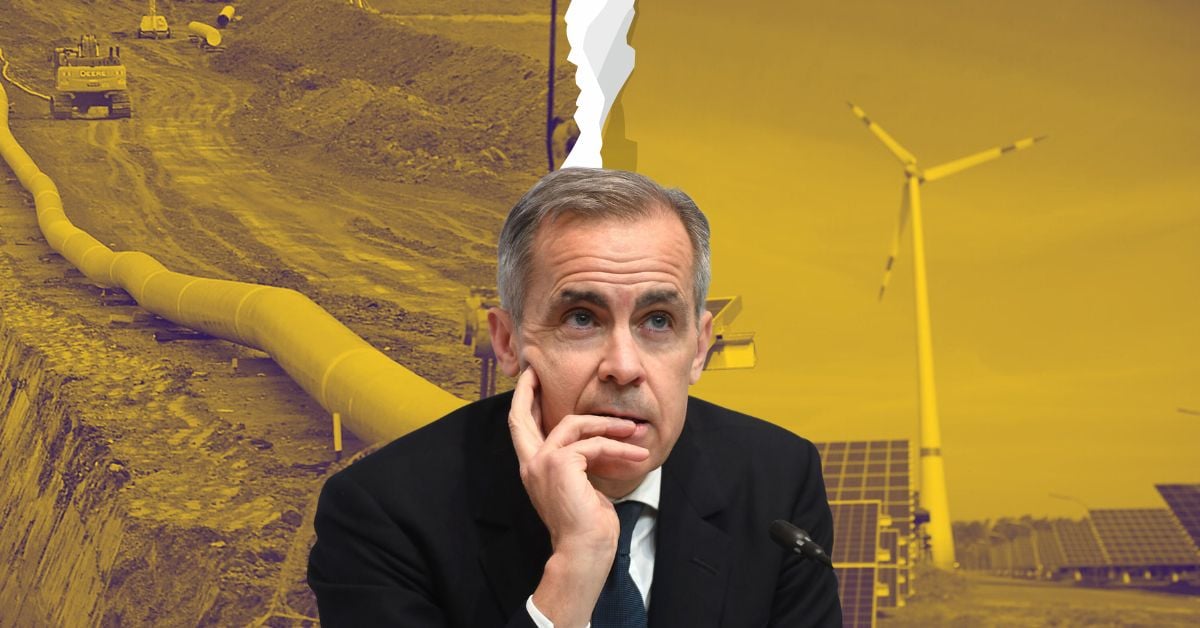Q City, November 5, 2020 – On Wednesday, the Bureau d’audiences publiques sur l’environnement (BAPE) consultations on the proposed fossil gas liqtion plant in the Saguenay region concluded, having witnessed historic public participation.
It was historic because of the incredible quantity and quality of the documents filed by the public, because of the diversity of speakers and because of the incredible participation of Q youth.
At the end of the hearings, more than 90% of testimonies were against or clearly opposed to the project. Beyond this simple tally, the wide-ranging sentiment expressed and felt during the hearings in the past two weeks was one of consternation that in 2020, in the midst of a climate crisis, we must still mobilize against a fossil fuel development project.
Here is an overview of the project
A moral issue
There was broad consensus over the past two weeks about the need to study the entire project (from the extraction of fossil gas to its combustion), with individuals, organizations and experts deploring the fact that the mandate of the BAPE commission is only a truncated and dishonest vision of reality.
The moral issue that the project could have disastrous consequences for future generations, was emphasized by many young Qers during the hearings.
“We are the future workforce and we are not interested in working for GNL/Gazoduq. We are the generation that will suffer the environmental consequences of this project, and the investors and decision-makers don’t seem to want to listen to us,” said representatives of the Association générale des étudiants et étudiantes du collège de Chicoutimi (AGEECC).
Promoter’s arguments destroyed one by one
In response to the many concerns heard during the hearings, advocates of the project did nothing more than repeat the promoter’s sales arguments over and over again, without regard for the scientific studies demonstrating the economic non-viability of this fossil gas liqtion plant or its unacceptable environmental impacts.
The promoter boasted that the GNL project is a “transition” project, but it has been proven that it would be a much more polluting project than presented and that it would destroy all of Qers’ efforts to respond to the climate emergency. Taking into account GHG emissions over the entire life cycle (from extraction in Alberta to international combustion, including methane leaks when the wells are closed at the end of the operation and along the entire route), the project would generate at least 50 million tons of GHGs each year.
The promoter also presented the project as an economic boost for the region, its market study was severely criticized by independent economists. The liqtion plant could, in contrast, deal a huge blow to the tourist industry in Saguenay-Lac-Saint-Jean and other regions bordering the fjord. It has been demonstrated by numerous organizations and experts that there is no market to buy the project’s gas.
The promoter also sought to minimize the risks of the project for local biodiversity, but it was clearly proven that the passage of huge GNL tankers would threaten numerous species, including beluga whales and other cetaceans, fish, birds and mammals.
“In light of everything that has been exposed in recent weeks, we would like to emphasize that anything other than a clear and unequivocal rejection of the project by the government will result in an unparalleled mobilization and outcry. Qers deserve better. We have already managed to shut the door on other outdated fossil fuel projects. We will do it again,” concluded the various groups.
Quick highlights:
-More than 2500 briefs were filed for the BAPE.
-There were 178 participants at the hearings.
– 89 244 Qers have signed the petition to express their opposition to the project.
– 48 student associations, representing more than 300,000 students, have adopted a mandate against the project.
-30-
Participating organizations:
Marc-André Viau, Équiterre
Adrien Guibert-Barthez, Coalition Fjord
Anaïs Barbeau-Lavalette, Mères au front
Dominic Champagne, Pacte pour la transition
Henri Jacob, président Action boréale
Jacques Rousseau, Regroupement vigilance hydrocarbures Québec
Lilas Lamontagne Carpin, Mouvement citoyen littOralement inacceptable (MCLI)
Alice-Anne Simard, Nature Québec
Patrick Bonin, Greenpeace Canada
Rodrigue Turgeon, Collectif abitibien Gazoduq, parlons-en!
Caroline Brouillette, Réseau action climat Canada
Dean Evangeliou, Climate Reality Project Canada
Sophie Paradis, Fonds mondial pour la nature (WWF-Canada)
Rébecca Pétrin, Eau Secours
Réal Lalande, Action Climat Outaouais
André Bélisle, AQLPA
André-Yanne Parent, Projet de la réalité climatique Canada
Ashley Torres, Coalition étudiante pour un virage environnemental et sociale (CEVES)
Marie-Eve Sigouin, Coalition anti-pipeline de Rouyn-Noranda (CAP-RN)
Marie-Josée Béliveau, Alternatives et Collectif Femmes pour le Climat
Esther Auger, Pétroliques anonymes
Simon Guiroy, Action étudiante «Arrêtons GNL!»
Diego Creimer, Fondation David Suzuki
Denise Laprise, Montmagny en transition
Lucie Massé, Action Environnement Basses-Laurentides
Marie-Christine Milot, La Planète s’invite en santé
Pascal Bergeron, Environnement Vert Plus
For more information:
Adrien Guibert-Barthez, spokesperson
Coalition Fjord
(418) 376 3371
Anthony Côté Leduc, media contact
Équiterre
(514) 605 2000



